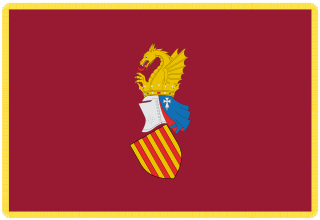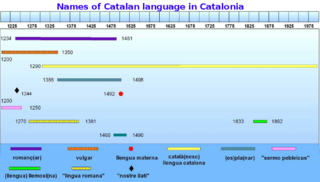
The Resolution concerning principles and criteria for protecting the name and identity of Valencian (Dictamen de l'Acadèmia Valenciana de la Llengua sobre els principis i criteris per a la defensa de la denominació i l’entitat del valencià) is a normative resolution made by the Acadèmia Valenciana de la Llengua in 2005.
Normative generally means relating to an evaluative standard. Normativity is the phenomenon in human societies of designating some actions or outcomes as good or desirable or permissible and others as bad or undesirable or impermissible. A norm in this normative sense means a standard for evaluating or making judgments about behavior or outcomes. Normative is sometimes also used, somewhat confusingly, to mean relating to a descriptive standard: doing what is normally done or what most others are expected to do in practice. In this sense a norm is not evaluative, a basis for judging behavior or outcomes; it is simply a fact or observation about behavior or outcomes, without judgment. Many researchers in this field try to restrict the use of the term normative to the evaluative sense and refer to the description of behavior and outcomes as positive, descriptive, predictive, or empirical.
The Acadèmia Valenciana de la Llengua, also known by the acronym AVL, is an institution created on September 16, 1998, by the Valencian Parliament, which belongs to the set of official institutions that compose the Generalitat Valenciana, according to the Act of Autonomy of the Valencian Community.
The text recognises the unity of the Catalan-Valencian language [1] and the right of using both denominations for the same language, [2] and asks political organisations to avoid the politicization of linguistics. [3]

Catalan is a Western Romance language derived from Vulgar Latin and named after the medieval Principality of Catalonia, in northeastern modern Spain. It is the only official language of Andorra, and a co-official language of the Spanish autonomous communities of Catalonia, the Balearic Islands and Valencia. It also has semi-official status in the Italian commune of Alghero. It is also spoken in the eastern strip of Aragon, in some villages of Region of Murcia called Carche and in the Pyrénées-Orientales department of France. These territories are often called Països Catalans or "Catalan Countries".
The Valencian linguistic conflict, also known as Valencian sociolinguist conflict, refers to the conflict between the use of the Spanish and Valencian language in Valencia.








